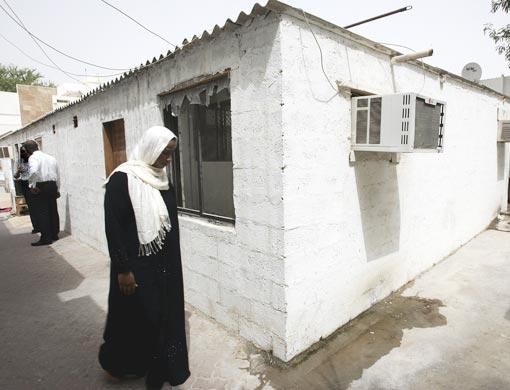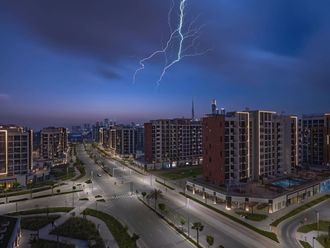Abu Dhabi: A Sudanese family of seven, living in a small room here, has been told to vacate their dwelling after Ramadan as it will be demolished.
Aidous Osman, his wife and five children reside in a one-bedroom apartment adjacent to Mussaffah Road. The rent is Dh2,300 monthly and the room can barely accommodate a single person.
"My wife and daughters sleep in a tiny room, the boys sleep on the couch, while I sleep on the floor," said Osman.
"And now they are asking us to leave our apartment! Where do we go? How do we live? One-bedroom flats now cost Dh120,000 which means spending all our income on accommodation."
Osman is one among many families living illegally.
According to an official from the City Image monitoring team, around 168 cases of illegal partitioning have been reported.
A Jordanian family living in a studio apartment knew they were breaking the law. "Do you think we enjoy living in this small wooden hut? We know it's illegal to live in a partitioned house, but can't afford anything else," said Aisha Hassan, a housewife whose husband is an office boy.
Many others say the severe shortage of housing and exorbitant rents have forced them to live in these conditions.
There are currently 35 supervisors on the City Image monitoring team, each handling five different areas of the capital.
"We usually visit villas and buildings and watch out for illegal conditions such as extra floors or partitions," said one of the supervisors.
Common offences
According to Omar Al Hashemi, division manager at the Municipal Office: "Any change in a building structure must be licensed and approved by the Abu Dhabi Municipality."
- Common illegal additions include walling off balconies and turning them into rooms.
- Adding partitions to a villa and turning it into studios.
- Using wood and other unsafe roofing material, such as asbestos, for partitions.
- Overloading a building's power source.
- Once the inspection team finds a violation, a warning letter is issued to the tenant.
- A warning letter is sent to the owner if the inspector finds him/her equally responsible.
- Illegal cases are referred to the court after the first inspection.
- A month later, the municipality has the right to take action.
Have your say
How rampant do you think this problem is? What, according to you, is the solution to the issue? Tell us at letter2editor@gulfnews.com or fill in the form bellow to send your comments.













